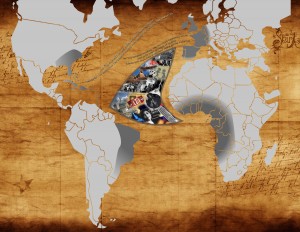I had read a while ago about interactive fiction, but I had never tried it. Galatea is my first experience with this kind of fiction. My first attempts to interact with Galatea were not successful as I kept typing words and asking questions which resulted in answers such as “that’s not a verb I recognize” and “You can’t form your question into words”. This was rather devastating. Then, I typed the word “help” and got some hints about verbs and shortcuts that could be used. Although this information was helpful, it was also limiting. In order to get more information and keep Galatea talking, I needed to guess other words based on her answers to some of my questions.
Overall, I admit that the whole experience was limiting. I was eager to know more about Galatea, but every time I asked a question Galatea brought the artist into the conversation. Almost everything Galatea talks about is related to the artist including her memories and her perceptions of life, death, and God. Although Galatea is the main character and narrator, through this activity she is decreased to be merely a voice who speaks about the artist. There are some important details she shares about the artist like the place where they met, the studio where they live, and about the artist’s family and childhood, but she did not share not very much (at least in my experience) about herself. Despite feeling limited, I found this project very stimulating and I can’t wait to know more about Galatea and the artist from the different experiences of other students in our upcoming class.
